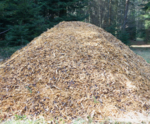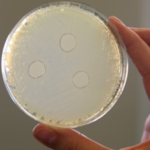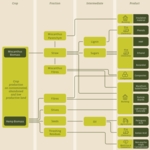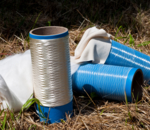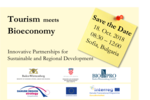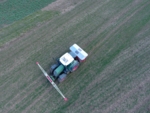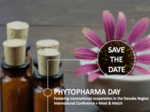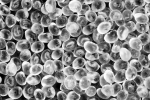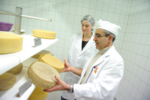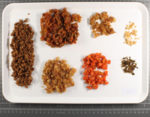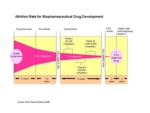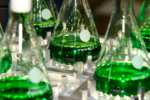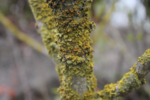-
Phosphorus recovery from sewage sludge - 21/10/2020
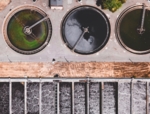
Biotechnology for the bioeconomy: in something known as the P-bac process, sulphur bacteria extract phosphorus from sewage sludge ash. Phosphorus is one of the key building blocks of life and an essential nutrient for plant growth. When there is not enough phosphorus in the soil, farmers apply it via organic or mineral fertilisers.
https://www.biooekonomie-bw.de/en/articles/news/bacteria-help-recycle-phosphorus
-
Phytopharmaceuticals - 14/09/2020
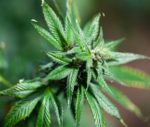
Anyone who thinks hemp is just an inconspicuous plant, whose ingredients can be used, at best, as an intoxicant, can quickly be proven wrong. Besides being used as a valuable raw material for textiles and building materials, the plant has great potential as a medicinal drug. The CANNABIS-NET network, coordinated by the University of Hohenheim, has been set up to establish the basis for producing medicinal hemp in Germany.
https://www.gesundheitsindustrie-bw.de/en/article/news/medicinal-cannabis-be-grown-germany
-
Microstructure Technology - 17/07/2020

Sensory organs are sophisticated masterpieces of nature. That is why humans have often tried to copy them. Be it cameras or microphones - there are technical objects that have always been based on natural models such as the eye or the ear. For a long time, however, no artificial sense of smell has featured in the technical repertoire. Now researchers at the Karlsruhe Institute of Technology (KIT) have developed an electronic nose. It can…
https://www.gesundheitsindustrie-bw.de/en/article/news/electronic-nose-many-applications
-
Qualitative soil fertiliser - 10/07/2020
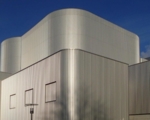
Recycled material instead of waste: wood ash is good for soil and plants - if the quality is right. The German Federal Quality Association for Food Ash ensures reliable wood ash standards with its certifications. The RAL-Dünger label for fertilisers provides the necessary certification for natural wood ashes to be used in the circular economy.
https://www.biooekonomie-bw.de/en/articles/news/how-natural-cycles-can-be-closed-wood-ash
-
-
Urban agriculture - 23/04/2020
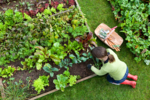
Given the challenges faced by modern agriculture, it is vital to raise people’s awareness of how to change their approach to food. The founders of the Stuttgart-based start-up company farmee GmbH see urban agriculture as the key to making this change possible. The company has developed “alphabeet”, an app designed to encourage consumers to produce their own food. After all, only those combining knowledge and practical experience can be expected…
https://www.biooekonomie-bw.de/en/articles/news/alphabeet-the-green-fingered-smartphone
-
Biosensors - 09/04/2020
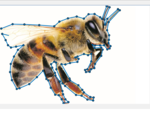
Sensor networks are one of the keys to achieving digitalisation of the bioeconomy. Sensor networks are on the way to becoming important analysis and control instruments for energy-efficient and sustainable material cycles. Dieter Hertweck, Professor of Business Information Systems at Reutlingen University of Applied Sciences, shows what is already possible in digital agriculture and waste recycling and what is feasible for the future.
https://www.biooekonomie-bw.de/en/articles/news/Sensors-for-the-bioeconomy
-
-
Producing valuable new products from waste materials - 07/01/2020
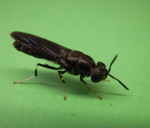
Eco-friendly and responsibly manufactured products are more in demand than ever before. Specific research is being carried out into materials and applications for a wide variety of uses. The Fraunhofer Institute for Interfacial Engineering and Biotechnology IGB is working with Hermetia Baruth GmbH on the vision of an insect biofactory that uses waste materials to produce a wide range of products such as biosurfactants, animal feed or foils.
https://www.biooekonomie-bw.de/en/articles/news/A-vision-insect-biorefineries-as-components-of-a-sustainable-bioeconomy
-
-
Biosensors - 03/12/2019
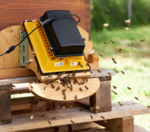
Biosensors are used in medical diagnostics and food and environmental analyses, to name just a few examples. apic.ai, a start-up based in Karlsruhe, uses honey bees as bioindicators to gain insights into the state of the ecosystem. The company also uses artificial intelligence (AI) methods for their ecotoxicological investigations.
https://www.biooekonomie-bw.de/en/articles/news/learning-from-the-bees
-
Expert interview on NTDs – part 2 - 29/05/2019
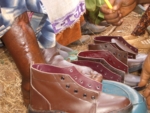
"Leaving no one behind". The motto of the 2030 Agenda with its 17 Sustainable Development Goals (SDGs) which was signed by the United Nations (UN) in 2015 makes clear that combatting poverty and its consequences is an essential part of sustainable development. The fight against neglected tropical diseases (NTDs) is defined as a major aim of the Agenda’s sustainable development goals. The World Health Organisation (WHO) regards twenty…
https://www.gesundheitsindustrie-bw.de/en/article/news/neglected-tropical-diseases-gisela-schneider-the-burden-of-disease
-
-
Dossier - 15/04/2019

Plastic waste takes years to decompose and pollutes the environment. Nevertheless, plastics are an indispensable part of everyday life. It is therefore all the more important to find a meaningful alternative that is sustainable, environmentally friendly and has better properties and more functionality than conventional plastics. In addition, such an alternative should not be dependent in any way on fossil resources.
https://www.biooekonomie-bw.de/en/articles/dossiers/the-alternative-bioplastics
-
-
Article - 27/03/2019
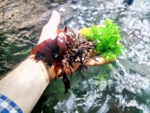
Algae are frugal organisms. They require only light, water, minerals and carbon dioxide to be able to produce biomass. These properties will now be exploited economically in a two-year research project. Dr. Stefan Sebök from the University of Hamburg plans to study the holistic utilisation of degradation products of a biogas plant in Wallerstädten by linking them to land-based algae cultivation.
https://www.biooekonomie-bw.de/en/articles/news/residues-from-biogas-plants-as-feed-for-algae
-
-
-
-
-
-
-
-
-
-
-
-
-
-
-
-
-
-
-
Dossier - 23/09/2013
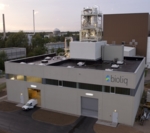
On the one hand, a bioeconomy relies on renewable resources to meet society’s need for food, energy and industrial products. On the other, it emphasises the role of biogenic material flows. The bioeconomy model is expected to reduce our dependency on fossil fuels in the long term. In order to implement the shift to a biobased economy on the regional level, the Baden-Württemberg government launched the Bioeconomy Research Strategy in summer 2013.
https://www.biooekonomie-bw.de/en/articles/dossiers/bioeconomy-a-new-model-for-industry-and-the-economy
-
-
-
Dossier - 15/04/2013

The increasing demand for functional foods clearly shows that the role of food is no longer just to meet an essential need. Food that offers additional nutritional benefits is becoming increasingly important for example food that is able to prevent or treat diseases. This kind of food is therefore interesting for consumers the food industry and the healthcare sector alike. Products based on plant raw materials are particularly in demand due to…
https://www.gesundheitsindustrie-bw.de/en/article/dossier/bioactive-plant-foods-more-than-just-filling
-
-
-
Biobanking is still a very specialist subject. The Research Committee at the German Bundestag, the Office of Technology Assessment at the German Bundestag and the German Ethics Council are all interested in this biomedical research tool, which is both necessary and meaningful. However, opinions with regard to the ethical, legal and technical approach to biobanks differ. Since March 2012 it has become absolutely clear that Germany will not pass a…
https://www.gesundheitsindustrie-bw.de/en/article/dossier/biobanks-treasure-chests-for-biomedical-research
-
Dossier - 14/05/2012
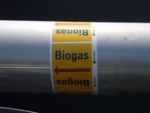
In addition to sunlight water and wind biogas is a regenerative source of energy that contributes to saving fossil resources. Germany is home to around 7100 biogas plants including 796 as of 2011 in Baden-Württemberg. In 2010 these facilities produced 11 per cent of the electricity generated from renewables in Germany. Energy-rich methane is the major constituent of biogas and is produced when organic compounds are broken down by bacteria in the…
https://www.biooekonomie-bw.de/en/articles/dossiers/biogas-a-promising-source-of-renewable-energy
-
Website address: https://www.biooekonomie-bw.de/en/search




